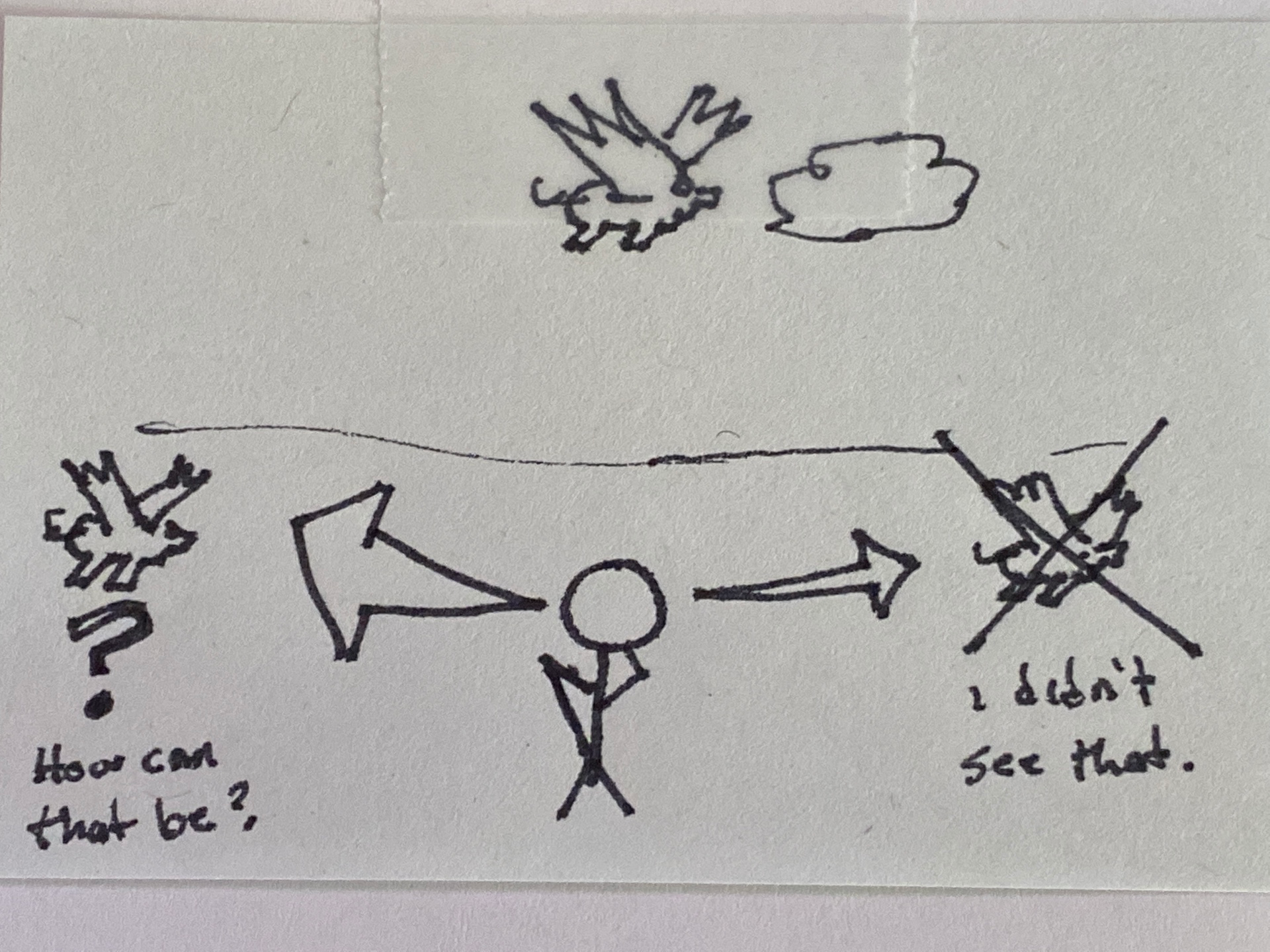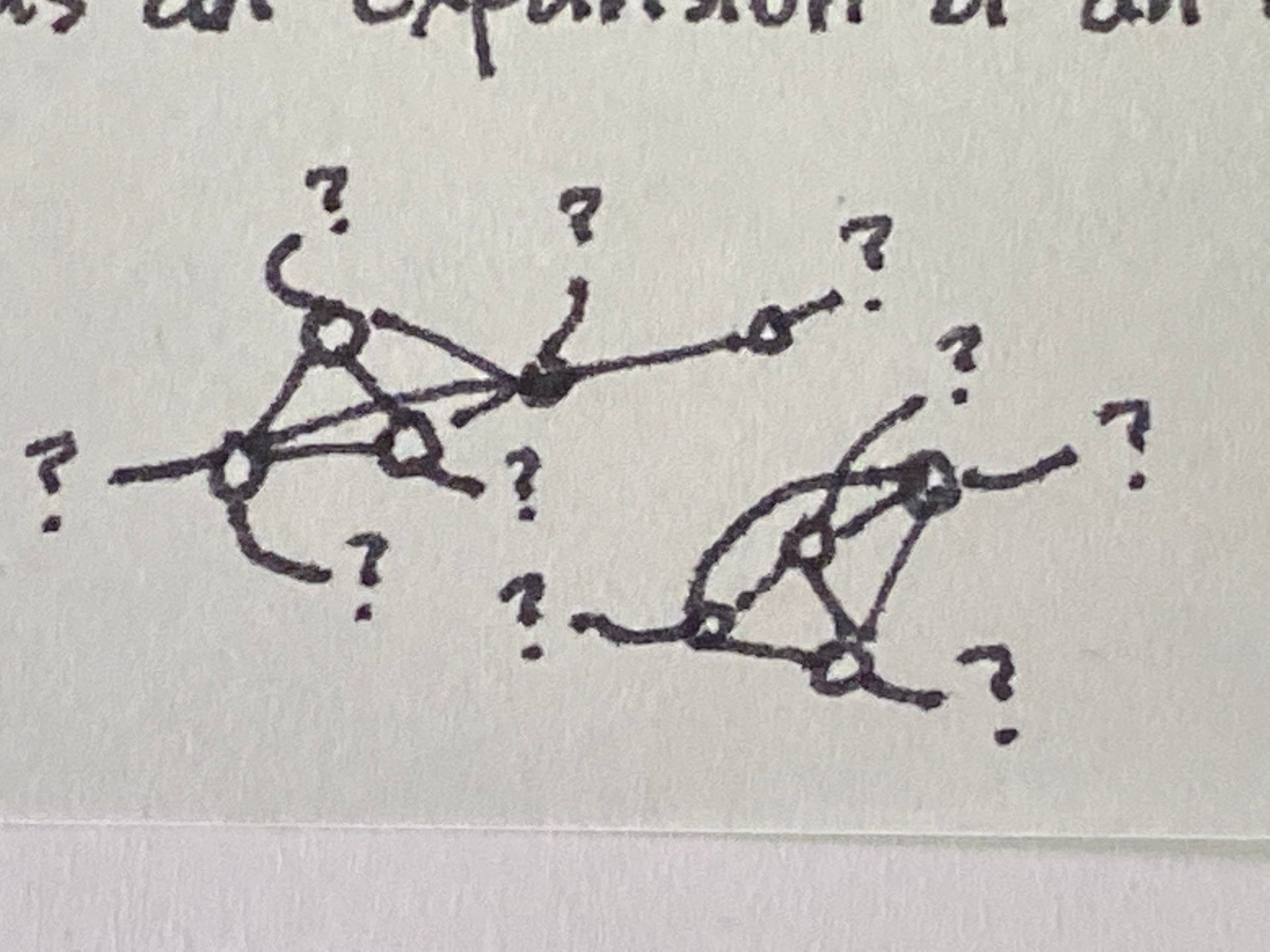Edge of Knowing
Grow the depth of your understanding by actively looking for “I don’t know.”

as you encounter new information and experience, use that information to test your Personal Universe by looking for inaccuracies and contradictions.
We’re faced with things we don’t understand every day, but more often than not, we ignore them and pretend everything makes sense.
“Just as conflicting predictions are the occasion for experiment and observation, so conflicting ideas in a broader sense are the occasion for all rational thought and inquiry. For example, if we are simply curious about something, it means that we believe that our existing ideas do not adequately capture or explain it. So, we have some criterion that our best existing explanation fails to meet. The criterion and the existing explanation are conflicting ideas.” — David Deutsch, The Beginning of Infinity, pp. 16-17.
-
The feeling of looking for things that don’t make sense is a subtle one. We have a cognitive bias where we ignore or don’t even register information that goes against what we think we know, so it’s tricky. We have to depend on our Intuition to tell us when our conscious mind has ignored something. For me, it’s a subtle feeling of a “double take” where you have a quick “huh?” feeling and look twice at something. Learn to pay attention to that and you’ll be on your way.
-
You can think of this as having an “active mind.” Staying alert to both your main senses and you’re felt senses in the moment is a form of Discernment.
-
Looking for “I don’t know” is not the same as looking for novel facts in your social media feed. Ideally, you’re basing your findings on two things:
-
It’s something you noticed, not something brought to your attention.
-
It connects to something you already know—i.e. you’re curious.
-
-
Imagine your knowledge structure as containing a lot of loose ends that are floating both at the edges of your knowledge and between areas of knowledge. Those are the “I don’t know” opportunities. They are chances to add to your knowledge either as an expansion or an integration.

Therefore:
Grow the depth of your understanding by actively looking for “I don’t know.”
Inaccuracies and contradictions may take the form of logical fallacies—Logic, but to notice them, you need to listen to your Intuition; when you get to “I don’t know,” you’ll either be able to look up an answer, or you’ll have to discover the answer yourself, leading to a possible innovation—Your Innovations